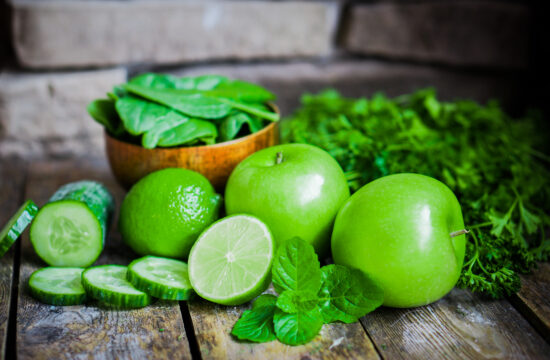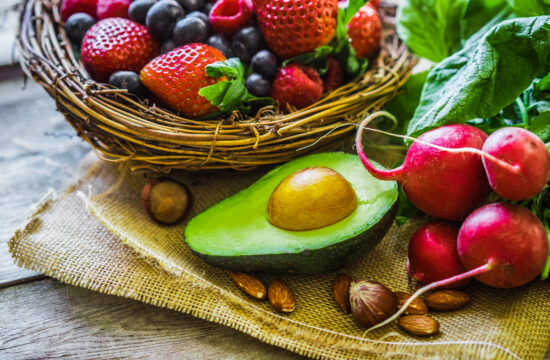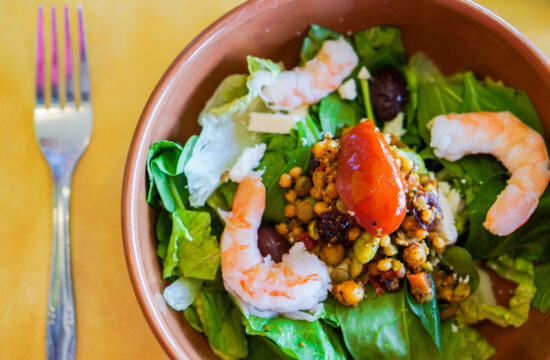Understanding Why You Want to Go Vegetarian
Reflect on Your Motivations
One of the first steps I took when considering a vegetarian diet was really digging deep into why I wanted to make this change. For me, it was a combination of health, environmental, and ethical reasons. Understanding my motivations set a strong foundation for my journey. It made me more committed because I wasn’t just doing it on a whim; there was a purpose behind it.
Think about what resonates with you. Is it the idea of improving your health? Maybe you want to minimize your carbon footprint? Whatever it is, jot it down. Having a clear vision of your “why” keeps you motivated on tough days.
Need a Strong Nutrition Boost for Your Diet? Take a Look...
Connecting personally to your reasons enhances your experience. Sharing these motivations with family and friends can also be a great way to garner support. They’ll know where you’re coming from and can even join you in exploring vegetarian options!
Starting Slow
Gradual Changes Are Key
Jumping straight into a vegetarian diet can feel overwhelming. I learned that making gradual changes eases the transition. Start by having a few meat-free days each week. I remember my first “Meatless Monday,” which morphed into two meatless days, and before I knew it, I was enjoying vegetarian meals regularly!
Experimenting with different cuisines helped me a lot. From Mexican beans to Indian chickpeas, there’s a world of flavors to explore. Gradual changes also allow your taste buds to adapt. Give yourself time, and don’t rush the process; no one is timing you here!
Keep track of your meals and how you feel. This is a fun way to notice what works for you and what you enjoy. Before you know it, you’ll have a repertoire of favorite dishes that satisfy your cravings without meat!
Need a Strong Nutrition Boost for Your Diet? Take a Look...
Finding Delicious Alternatives
Explore Meat Substitutes
One of my biggest fears about going vegetarian was missing out on my favorite meals. Luckily, I quickly discovered how many tasty meat alternatives exist. From soy products like tofu and tempeh to legumes and seitan, there are fantastic options to mimic your traditional dishes without sacrificing flavor.
Making the switch doesn’t mean you’ll miss out on the textures or tastes you love. I’ve made some incredible veggie burgers and even a lasagna using layers of roasted zucchini instead of pasta. These alternatives are not only satisfying but also provide nutritional value!
Don’t forget about beans and lentils! These little gems are protein-packed and can be used creatively in everything from stews to salads. Try experimenting with spices and herbs to bring out their flavors; a good seasoning can make all the difference.
Cook and Experiment with New Recipes
Get Your Hands Dirty in the Kitchen
Cooking has become one of my favorite hobbies since transitioning to a vegetarian diet. There are endless recipes at your fingertips, just waiting to be tried! I can’t stress enough how important it is to explore new dishes that excite your taste buds.
Start simple. Maybe a vegetable stir-fry with some nuts or grains. As you gain confidence, don’t hesitate to venture into more complex recipes. There are tons of blogs and YouTube channels devoted to vegetarian cooking that can inspire you.
Good HealthY DIETING Solution is Easier Than Most People Think!
Take a Look for Yourself!
Cooking at home not only allows you to control what goes into your meals but also becomes an enjoyable way to unwind after a long day. Invite friends over for a cooking night; sharing delicious food in good company keeps the momentum going!
Building a Support System
Finding Community in Your Journey
Going vegetarian or even just experimenting with it doesn’t have to be a solo mission. I’ve found that having a supportive community or like-minded friends can greatly enhance the experience. Whether it’s joining a local vegetarian group or participating in online forums, it can definitely keep you encouraged.
Sharing your meals and ideas with friends or family can also inspire them to join you on this journey. Cooking together can make it even more fun, and you can learn from each other’s experiences. Plus, it’s a great way to spread awareness about the benefits of a vegetarian lifestyle!
Lastly, get connected with social media groups focused on vegetarian living. There you can find recipe swaps, motivational posts, and an authentic sense of community. It’s reassuring to see others walking the same path and sharing their triumphs and even their struggles.
Conclusion
Transitioning to a vegetarian diet isn’t just a dietary change; it’s a lifestyle shift. It’s about exploring new flavors, understanding your why, and discovering how wonderful a plant-based life can be. By taking it slow, finding substitutes, cooking up a storm, and building a supportive network, you’ll find enjoyment in this journey without feeling deprived.
FAQs
1. How do I start transitioning to a vegetarian diet?
Begin by understanding your motivations and starting slow. Incorporate meat-free days and gradually experiment with different vegetarian meals.
2. Will I feel deprived if I stop eating meat?
Not at all! There are so many delicious vegetarian alternatives that you can enjoy. Embrace the flavors of new foods, and keep discovering what you love!
3. What are some easy vegetarian substitutions for my favorite meals?
Try using lentils in place of ground meat, tofu or tempeh in stir-fries, and vegetables in lasagna. The possibilities are endless with a bit of creativity!
4. How can I find recipes that suit my new vegetarian lifestyle?
Look online for vegetarian blogs, YouTube channels, or cookbooks. Experimentation is key—don’t be afraid to adapt your favorite recipes!
5. What if I feel lost or unmotivated along the way?
It’s perfectly normal to have ups and downs. Connect with a community, reach out for support, and remember why you started to keep your motivation strong.












